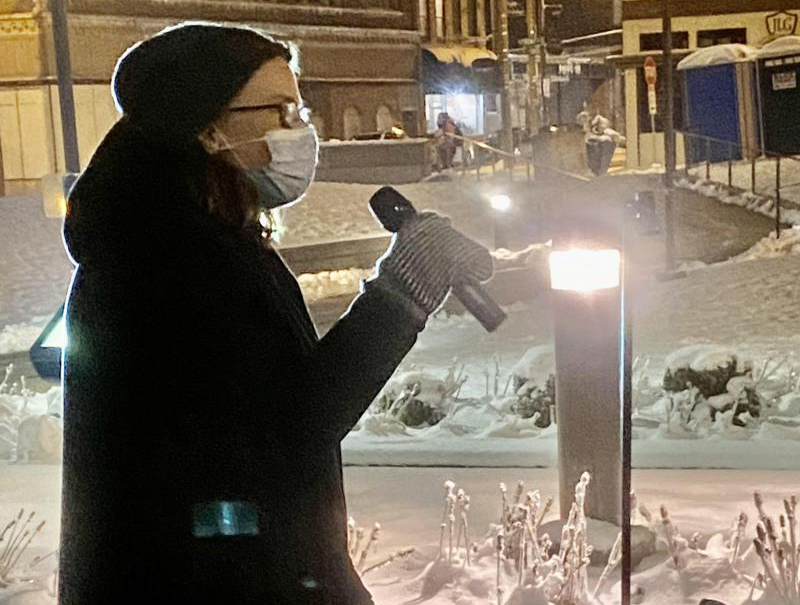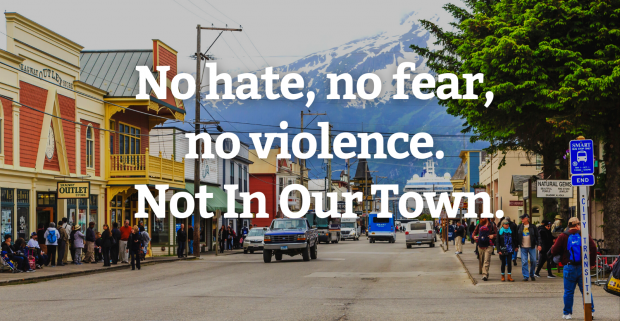Standing up against hate violence and for democracy is a core American value that has been battered and tested again in recent years. Now is the time to build relationships and collaboration in our communities that can shore up these core values of inclusion and help normalize respectful civic interactions. We are reaching out to the NIOT Network with this vital question: How can we find a way forward that honors the basic values that unite us: decency, democracy, respect for all our neighbors and build communities where every individual feels safe?
|
|
Here’s how to begin:
Send a public message of support to your members of Congress, saying you are glad they are safe and thanking them for upholding the rule of law in the election. (Unless they didn't.) Ask them to take action and investigate how the Capitol security failed in response to the violent insurrection.
Reach out to your friends, family, co-workers, and neighbors and invite them to join your local NIOT community group and host a virtual discussion on how to build resilience, stand up to hate, support democracy and inclusion in your city, and promote equal justice.
Be vigilant. Report incidents of hate so that the community and law enforcement can track them and work together on prevention and safety strategies for targeted communities. If you have concerns about white supremacist or extremist groups in your community, report them to law enforcement and work with your local community to reject their messages and organizing.
Download the NIOT/Project Over Zero Resilience guide, Responding to Hate: Building Safe, Inclusive Communities, and start with one of the actions outlined in the kit and begin to build your stakeholder group — particularly communities most likely to be affected by hate and intolerance. It is a work in progress that will be informed and improved by your actions. (See additional resources below)
Find ways to do Covid-safe exhibitions of support for democracy and against hate and bigotry.
 |
|
Bloomington City Council member and NIOT leader Mollie Ward addresses the crowd during a vigil Thursday night in front of the Law and Justice Center in Bloomington, Ill. (Credit: WGLT)
|
If you don’t have a NIOT community, or an equity and inclusion committee in your city, consider starting one. NIOT’s network of local communities can connect you to others who have been practicing anti-hate action for years. Our message is clear and we can say it together, “No hate, no fear, no violence. Not In Our Town.”
Overcoming hate, racism and division in this fractured time will not be easy or swift. It starts in our local communities with the day-to-day interactions that hold our towns and cities together, working across political differences every day. How can we normalize these relationships again so we can reach a higher goal? We ask you to join us in this long-distance marathon toward inclusion and equity.
It starts with you and the steps we all take next. We look forward to learning from you. We can stop hate, together.
The NIOT Team
Downloadable Guides and Online Resources
The Divided Community Project Toolkit
A resource guide that describes specific community engagement and conflict resolution strategies that local leaders can use to identify and address community division and its underlying causes.
Key Considerations for Leaders Facing Community Unrest: Effective Problem-Solving Strategies That Have Been Used in Other Communities (2nd ed. 2020, DCP)
Local public officials and other community leaders have little time to react when faced with divisive issues and events. Many recent incidents triggering unrest have galvanized concerns about racial profiling in law enforcement though this document offers strategies more broadly. This document identifies for local leaders some considerations for actions that they might take in those critical early moments as well as in the weeks that follow. The primary intended audience is these local leaders who will take charge in the event of unrest, as well as the staff they charge with various tasks.
Planning in Advance of Unrest (2nd ed. 2020, DCP)
This document distills lessons from recent experience with community unrest that can be useful to those who want to have a plan in place before turbulence occurs. Each community can adapt these general lessons as its leaders prepare a plan tailored to their community and the reasons for division within that community. The planning suggestions offered in this document can be used to assess and improve the resilience of a community, to identify issues and create ways to address them before they cause an eruption, and to be prepared to deal constructively with unrest if it occurs.
"What to Do When Hate Comes to Your Town"
An article from the Brookings Institute blog that was referenced in the Webinar and could be helpful for communities looking for advice.
Checklist for Self-Assessment on Community Leaders’ Social Media Use for Divided Communities (DCP)
Phenomenal growth in the use of social media is altering the ways that community members perceive and interact with each other. “Your community is online,” social media expert Colin Rule says to community leaders. “You need to be online too.” This report focuses on how community leaders seize the opportunities and confront the ever-changing obstacles created by the increasingly pervasive use of social media and proliferation of social media platforms as these leaders address community division and civil unrest.
Over Zero's Building a Resiliency Network Guide
A toolkit for building community resilience. As we enter into the most contentious election cycle in recent memory, set against the backdrop of an already tumultuous year, leaders from all walks of life will play a central role in building communities resilient to election violence – communities that are able to prevent, mitigate, and respond in the face of increased risk. As leaders prepare for this critical moment, we offer this toolkit to the broader toolbox of approaches for preventing election violence.
NIOT/Over Zero Responding to Hate: Building Safe Inclusive Communities
A community resiliency guide and action toolkit (v1 October 26, 2020)
United Against Hate Week — 20 Ideas for Action
United Against Hate Week (Nov. 30-Dec. 6, 2020) began as a call for local civic action by people in every Bay Area community to stop the hate and implicit biases that are a dangerous threat to the safety and civility of our neighborhoods, towns and cities. Now our movement is growing and cities and towns across the country are joining us. Learn more: UnitedAgainstHateWeek.org
Bridging Divides 'How To' Guide
This guide helps you to access and use data from Bridging Divides Initiative at the community level. Learn more about Bridging Divides at their website: Bridging Divides Initiative
NIOT Stop Hate Action Kits
Tips and advice for reporting hate crimes and supporting victims and their families.
